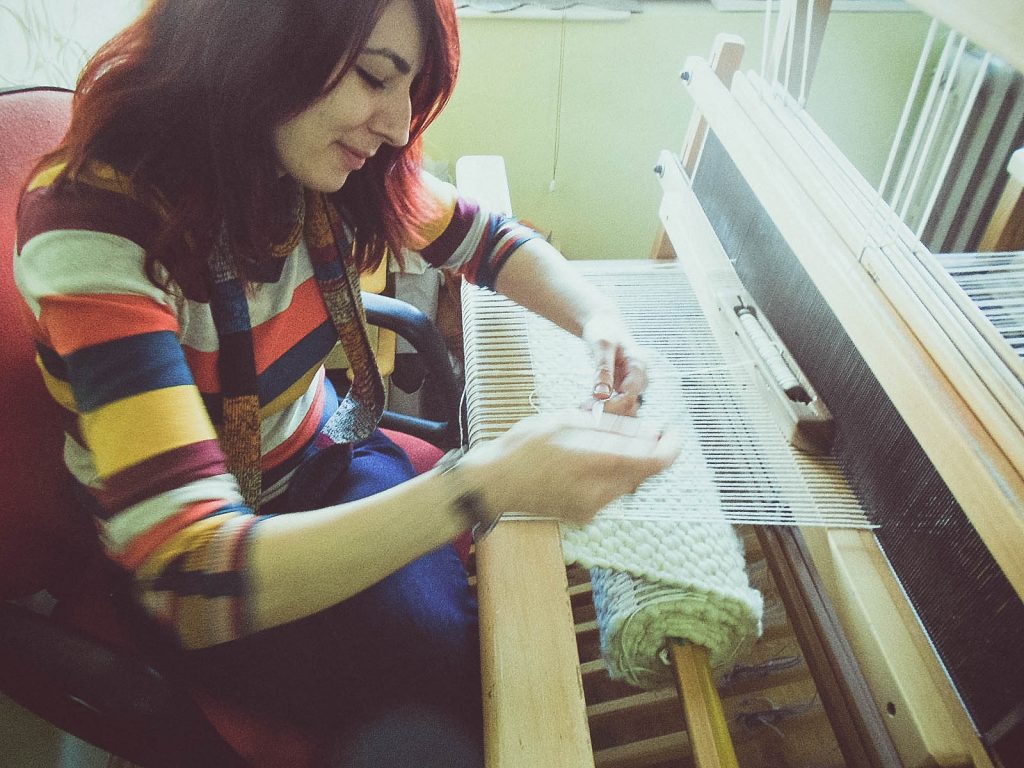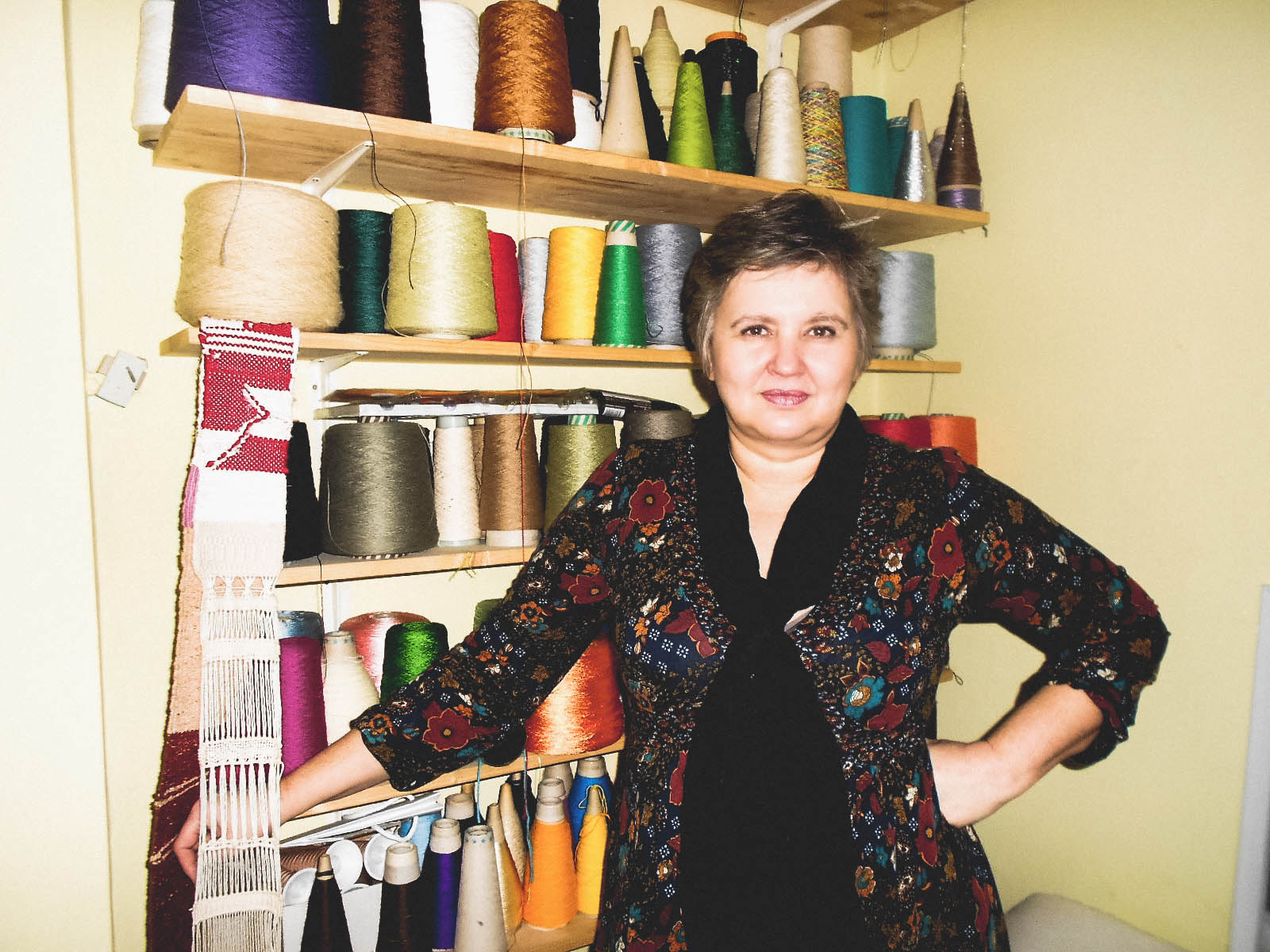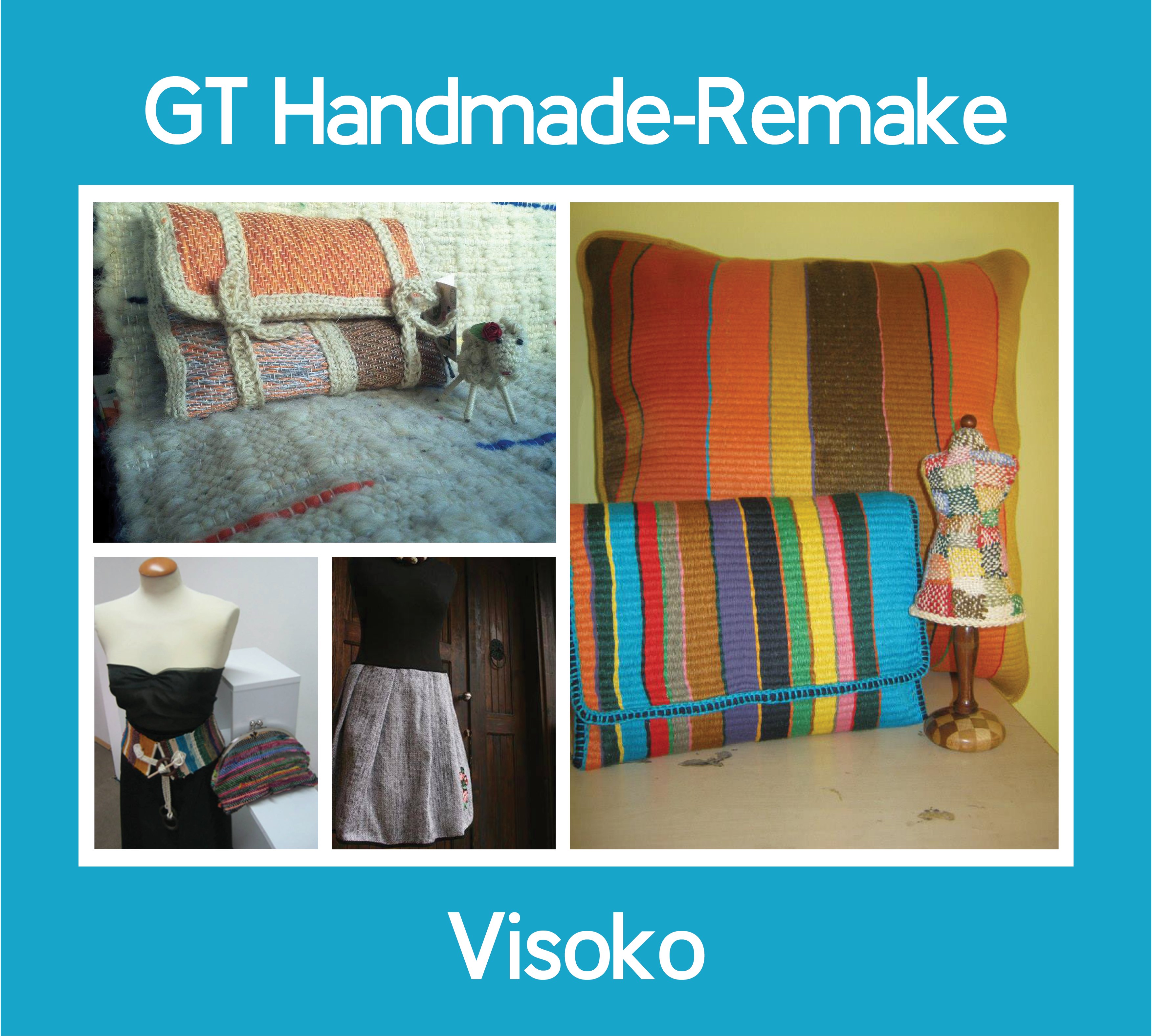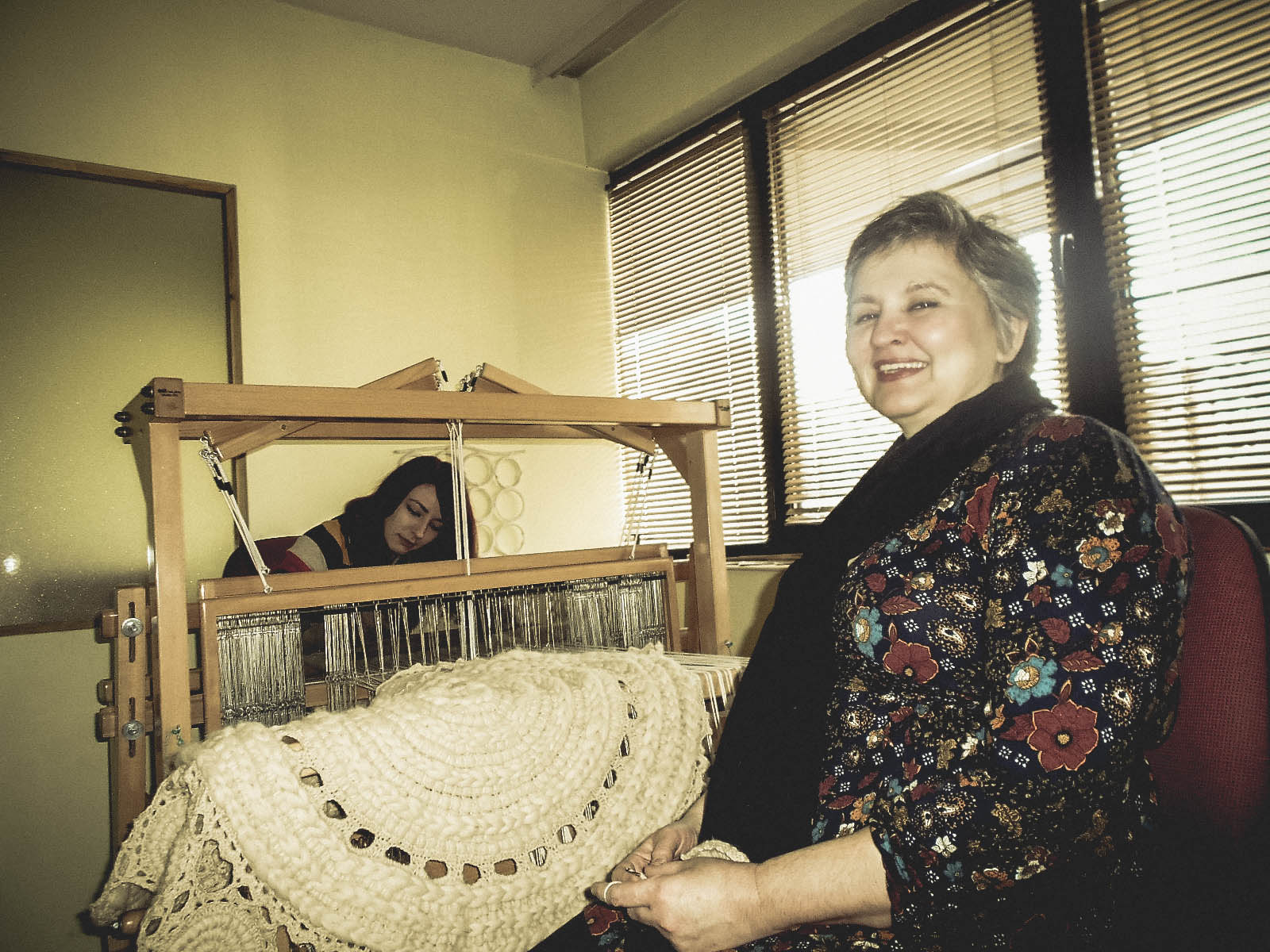
“It is a tradition to create something out of something else, that is why the base of my work is a Bosnian sheet. It is evidence that our ancestors recycled, [a] hundred years ago”
In the summer of 2003, I met Alisa on a basketball court. She was the best player in the team I had just joined, and during the first practice, we figured out that we lived in the same neighborhood in Visoko. As we grew to be close friends, I learned that Alisa is talented not only on the basketball court, but also in the special Bosnian craft of weaving, which she learned from her mother. Today, Alisa weaves woolen sheets and raw silk, which her mother uses to produce clothing they sell in their store.
Their workshop in Visoko is small, but it has a special family warmth to it, full of love and respect. There are green walls with big windows that let in light which plays joyfully with the shadows. There are professional machines for weaving and sewing, a big shelf full of colorful cotton balls and threads, more shelves with finished products, and dress forms draped with their creations. For me, this workshop represents a small magical world with the personal stamp of Bosnian women’s innovation, made of pride and hard work.

I often come to the workshop to watch Amna, Alisa’s mother, while she draws new models, sews, knits or crochets. Each time she greets me with a smile and energetically presents her newest creation, testing my reaction and carefully listening to my comments. While I watch her hands move with incredible ease, I get the feeling she has been doing this since she was a child. But her career actually began a little more than 20 years ago, out of necessity and as a result of events brought on by war.
When the fighting broke out in Bosnia-Herzegovina in the spring of 1992, the Mujkanović family moved to Visoko from their home town of Derventa. While her husband was in the hospital in Croatia, Amna, who at the time had two small children, decided there was no time for fear and desperation. She bought her first cotton ball and started knitting sweaters, which she later sold in a local shop.
Years went by, and her palette of products was expanding: from mobile phone and tablet cases to bags, dresses, clothes, curtains, jewelry, scarfs, hats, belts and colorful Bosnian rugs. Whatever you can imagine, Amna can make, and you will be pleasantly surprised by the quality and beauty of her work. All of her products are unique and so perfected that they could be worn on fashion runways throughout the world.

“The idea of developing my own business was born when I was a refugee in Germany, where we went after a few years as refugees in Croatia. I already knew I wouldn’t be able to return to Derventa and work as a clerk in a municipality office, a job I had before the war. I imagined that this [weaving business] would be my job, which I would be able to do from home, contribute to the house budget and have enough time to be a mother and a housewife,” Amna tells Balkan Diskurs.
She explains that she used her residence in Germany to buy machines needed for production, that the family thought about staying in Germany or maybe moving somewhere else, but all those ideas disappeared once she saw her parents for the first time after the war.
“A sense of duty towards my family, who spent the war in a concentration camp, was decisive. I think people in Bosnia forgot about the war quickly and entered the twenty-first century, a century for which there is still no basis here.”
“I have never forgotten about the war because that is the period when I created my own system of values in life. From when I arrived in Visoko to the founding of the company, I made curtains, flags, did interior design, knitted for Amra Bečo’s collections and decorated Bosnian gourds for interior embellishment. I founded my company with help of my cousin, Erdal Medenčević, a man who believed in my vision,” Amna adds.
She never asked for help from the government, but she did collaborate with the NGO sector. However, that collaboration was soon terminated and caused a rift she feels to this day.
She explains that she was bothered the most by how the NGOs presented the creations as coming from “our poor women” and helped to build the generally accepted attitude that refugees and victims are people who want to get something without effort and work.
“The style of the presentation and inconsistency of their work, and the lack of effort from the NGOs to build something new or long-term made me stray away from such collaboration,” Amna says.
She emphasizes that one great quality Bosnian women possess is knowledge and readiness for improvisation. “It is a tradition to create something out of something else, that is why the base of my work is a Bosnian sheet. It is evidence that our ancestors recycled, [a] hundred years ago.”
She adds that she is inspired by the fact that every piece of clothing, regardless of its age and wear, can be used for the creation of something new and modern.
She learned the basics of her work from her mother. “I remember my mother sewing until dawn. I was young then, I did not care about it much, but my mother insisted that I learned, and I am grateful to her for that [because] she transferred invaluable knowledge to me.”

She says she is happy and content, but also that she works all the time on improving her knowledge, skills and production technique. “I am not a fashion designer by profession, but I see potential in the Bosnian tradition that is not used enough. The greatest mistake in Bosnia is a lack of innovation in creating a Bosnian brand,” says Amna.
For the new 2015 collection, which she is currently working on, Amna chose natural raw wool as the basis, because that is the only kind of wool coming from Bosnia – all others are imports.
“For me, a middle-aged woman, this is more than a business. I make my products with a lot of love and that does not allow me to be commercial enough for success in Bosnia. My goal is to create a foundation and a brand on which my daughter can build a business, in some better circumstances, which will, I hope, come to Bosnia,” Amna concludes.

Her company “GT Handmade-Remake” that emits positive energy, and Amna has a look that radiates strength, dignity, and wisdom. It is a look that tells you she will not compromise and that giving up is not an option.
For me, Amna is an inspiring Bosnian businesswoman, a creator with a vision, a guardian of the past, an owner of the future, and a leader for her daughter. In short, she a woman for all times.






